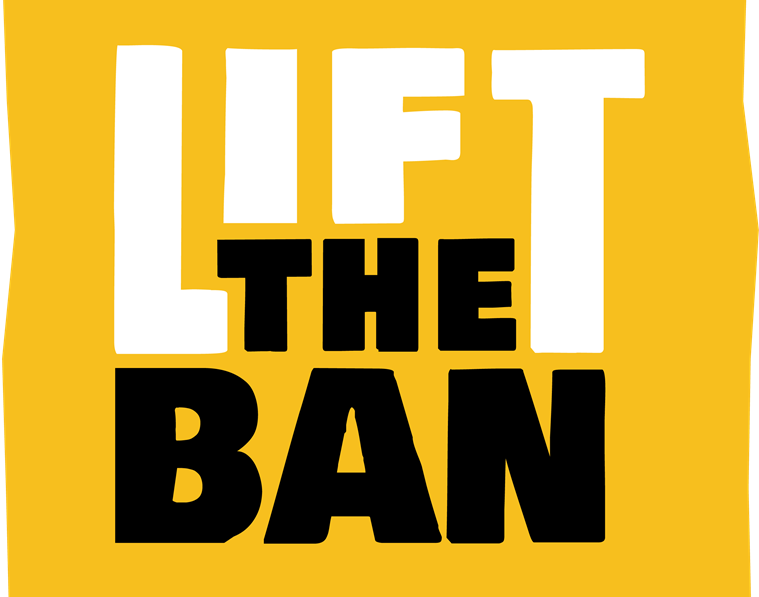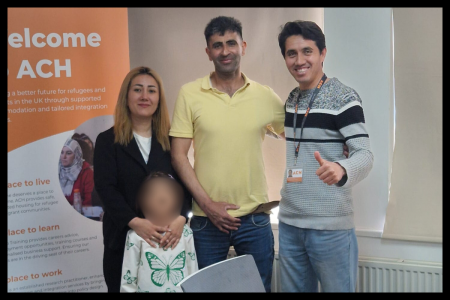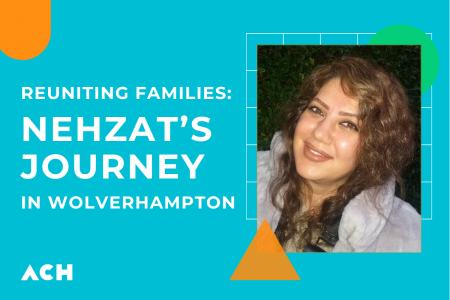
ACH urges UK Government to “Lift the Ban” and allow asylum seekers to work
We have the opportunity to change policy and improve people’s lives thanks to the launch of the Lift the Ban coalition. We are proud to be supporting this campaign alongside a large number of refugee organisations, faith groups, trade unions and businesses who are uniting in action to make positive change for asylum seekers and the UK economy.
What is the Lift the Ban campaign?
“The Lift the Ban coalition is calling for the right to work for people seeking asylum, and their adult dependents, unconstrained by the shortage occupation list after six months of having lodged an asylum claim or further submission” – Lift the Ban.
Currently, asylum seekers are not permitted to work in the UK whilst their claims are being processed. Even though this process is supposed to take up to six months, many people wait a lot longer (around 48%), with some even waiting years for an outcome, all the while not being able to sustain themselves through employment.
The Government does allow asylum seekers who have been waiting for over 12 months to apply for permission to work, however, they may only seek work if they meet the skills required for a list of very precise occupations including classical ballet dancer, nuclear medicine practitioner and geo-environmental specialist.
This coalition aims to unite organisations to influence Government and lift the ban that restricts the right for asylum seekers to work. ACH feel strongly about being a part of this significant campaign as it aligns directly with the work we do to support and encourage refugee integration in the UK. Links are also evident between the Lift the Ban campaign and our #rethinkingrefugee campaign where we are changing perceptions of refugees.
Why are we supporting Lift the Ban?
Diminishing skills leave people stuck in a poverty trap
Can you imagine spending over a year without work or education? Yes, at first this may sound appealing, but when you think about it practically, you can see how much of an impact this would have on your life. Not only would you be bored, isolated and have no income, your current skills would start to diminish, leaving you with holes in your experience and a lack of applicable skills for your future career.
In a Lift the Ban survey, 94% of people seeking asylum in the UK said they would want to work if they were given permission to by the government. These people are stuck in a poverty trap.
Asylum seekers are given just £5.39 a day to live on, which must meet all of their essential living costs, including food, clothing, toiletries and transport. Without a job, they struggle daily to support their family and themselves, and their talents go to waste.
Asylum seekers who are not permitted to work are left in this position of limbo. Lifting the ban will limit this damage, allowing asylum seekers to continue with their professions or gain new skills to start a new line of work, all the while contributing to society as a whole.
Improving integration into UK society
Coming to a new country is always a daunting experience, especially for those who are here because they’ve been forced to flee their home country. At ACH we work to integrate refugees and migrants into the UK through supported housing and employability training. Our end goal is to establish sustainable employment for refugees and to encourage integration and economic independence.
The longer asylum seekers are out of work, the longer the process of integration takes. Employment opens up new opportunities for people, including building networks, self-sustainability, improving skills and a sense of purpose; all of which help with integration.
Asylum seekers are an asset to businesses
UK businesses are facing a rise in skills shortages; “three-quarters (75%) of employers expect that they will need more staff with higher skills in the years ahead and this demand is strong across all sectors of the economy” – Edge Foundation. Asylum seekers often have the key skills needed to fill these gaps, having gained experience or qualifications in their home countries. The Lift the Ban coalition conducted a survey of 246 people with direct experience of the asylum process which revealed 74% had secondary-level education or higher and over a third (37%) held an undergraduate or postgraduate university degree. This highlights the level of skilled workers who have fled to the UK; a valuable resource to businesses.
Denying asylum seekers the right to work is not only a waste of their skills, but it is also a wasted opportunity for UK businesses. The diversity they can add to an organisation can boost productivity, company growth and staff retention. Allowing more people from diverse backgrounds to have access to employment opportunities will help businesses to flourish.
Economic benefit for all
One of our goals over the next ten years is to get 25,000 refugees into median salary jobs. This not only benefits them but the economy as a whole.
‘If half of people seeking asylum earned a national average wage then £42.4 million would be the amount that the Government could gain through tax and national insurance payments, plus save by not having to provide financial support.’ – Lift the Ban.
Allowing asylum seekers to work makes economic sense for all involved. The Government’s main argument for the ban relies on the theory that allowing asylum seekers to work will create a ‘pull-factor’ and more will apply for asylum in the UK, but there is little real evidence of this. Asylum seekers are more likely to move to countries where they have family or friends living or the people speak the same language as them.
How can you get involved?
- Sign the Lift the Ban petition https://act.refugee-action.org.uk/page/29178/petition/1
- Use the #LiftTheBan hashtag on social media to raise awareness of the campaign
- Talk to your local MP or decision makers
- Find out more information here
To work with ACH or find out more about what we do, contact us on yasmeen.shaeik@ach.org.uk.


